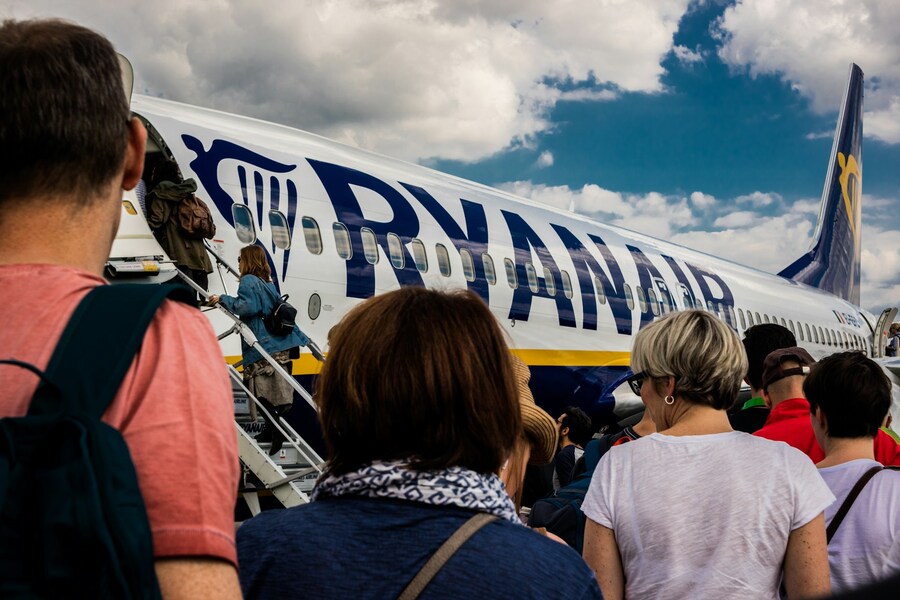The anticipation of a journey – the new sights, sounds, and flavors – is often the best part of planning a trip. But before you even pack your suitcase, you face the often-stressful task of booking your flight. In an age of dynamic pricing and relentless online deals, the process has become shrouded in rumors and outdated advice. Everyone has an uncle or a friend who swears by a secret trick to snagging the cheapest fare, yet many of these "hacks" are nothing more than persistent myths. Relying on these legends can cost you time, money, and sanity.
This travel guide cuts through the noise to expose 5 common flight-booking misconceptions that persist among even seasoned travelers. Understanding the true mechanics of airfare pricing and airline operations will empower you to make smarter decisions, ensuring the money you save can be better spent on your actual destination. From the best day to click "purchase" to the hidden costs of budget carriers, dispelling these myths is the first step toward becoming a true travel master. The truth awaits!
Are you still falling for these 5 flight-booking myths?
Tuesday is your best bet for booking

Source: Tara Winstead/Pexels
The idea that Tuesday is the golden day to book flights is arguably the most resilient myth in modern air travel. This belief originated years ago when airlines would manually load their new weekly deals into the reservation system on Monday evenings, leading to competitor adjustments and a price floor settling by Tuesday afternoon. The logic was sound for the era of paper tickets and slower data systems, but it's fundamentally outdated today.
In the current environment, pricing is nearly continuous, controlled by complex algorithms that adjust prices minute-by-minute based on real-time factors. While some minor price dips might still occur on Tuesday due to the echoes of old pricing structures or last-minute adjustments, relying on this single day is a gamble, not a strategy. The truth is that flexibility is the real secret weapon. The day of the week you book matters far less than the advance notice you give and the day of the week you fly. Studies consistently show that the optimal booking window for domestic flights is typically 1 to 3 months out, and for international travel, 3 to 8 months is often ideal. Within those windows, any day of the week can yield a spectacular deal if demand is low or a competitor has dropped their price. The best practice now is to set up price alerts and monitor a route for several weeks. When the price hits a point you're comfortable with, regardless of the day, book it. Waiting for a Tuesday "sale" could easily mean missing out on a fleeting, excellent price.
Score sweet deals by booking incognito
Another pervasive myth suggests that airline and booking websites track your searches and hike the price on a route you've viewed multiple times, creating a false sense of urgency. The suggested countermeasure is to clear your cookies, use an incognito or private browsing window, or even switch to a different device to trick the system. The theory is compelling: by hiding your identity, the website can't recognize your persistent interest and therefore won't manipulate the price upward.
While it's true that modern websites use cookies and IP addresses to track user behavior for marketing and user experience, the direct, immediate price manipulation based on your individual search history for a flight viewed minutes ago is largely unsubstantiated. Airline pricing algorithms are too sophisticated and operate on too large a scale to focus on the individual browsing patterns of a single user. Prices are dynamic, meaning they can and do change rapidly, but this is overwhelmingly due to site-wide inventory changes, real-time demand surges, and competitor adjustments, not a personal vendetta against your browser history. You may see a price jump between searches, but it's far more likely that another passenger booked the last seat in a cheaper fare class, triggering the algorithm to display the next available (and higher-priced) class to everyone searching, regardless of their browsing mode. Using an incognito window is always a good practice for general privacy, and it certainly doesn't hurt, but don't assume it's the key to unlocking hidden deals. Focus your energy instead on checking prices on different days and times, and across multiple reputable aggregators and the airline's own website.
Low-cost airlines don't always mean big savings

Source: Portuguese Gravity/Unsplash
The proliferation of low-cost carriers (LCCs) has revolutionized air travel, offering headline-grabbing fares that often seem too good to be true. For many travelers, the math is simple: a cheaper ticket equals a cheaper trip. However, this is one of the most financially dangerous myths to fall for. LCCs operate on an "unbundled" pricing model, meaning the initial ticket price is for the seat and little else. Everything else – from a checked bag and a carry-on that doesn't fit under the seat, to choosing your seat, printing a boarding pass at the airport, or even a glass of water – is often a separate, lucrative fee.
When travelers fail to accurately account for these ancillary costs, the budget fare can quickly surpass the cost of a standard ticket on a full-service carrier. For instance, a basic ticket might be $50, but with a checked bag at $60 and a large carry-on at $40, the total is suddenly $150 – a price that might have secured a more comfortable, all-inclusive fare on a competitor. In addition, LCCs often utilize secondary, smaller airports that can be much further from the main city, adding substantial and unexpected costs for ground transportation. When planning your trip, you should always perform a total cost analysis before booking an LCC, carefully calculating all necessary add-ons. Consider that the cheapest way to save money on the overall trip is to ensure you have secured the best possible price for all necessary services, from the flight to the ground transportation. For travelers who drive, booking in advance is key. For example, by using a platform like ParkingNearAirports.io, you can secure off-site airport parking lot reservations, often benefiting from significant parking discounts compared to the high fees charged by the official airport structures, or even securing exclusive airport parking offers that include valuable services like shuttle transport.
Overbooked flights can ruin your trip
The fear of an overbooked flight – and the resulting forced delay or cancellation – is a major source of anxiety for travelers. The myth here is that overbooking is a rare mistake or a malicious act by the airline to squeeze extra profit. In reality, overbooking is a sophisticated, standard operational practice based on years of data modeling. Airlines intentionally sell more tickets than there are seats because they know, statistically, a certain percentage of people will inevitably no-show due to missed connections, illness, or simply forgetting to cancel.
This practice is an economic necessity. If airlines didn't overbook, a flight with 10 empty seats would represent a direct financial loss. By overbooking, they minimize revenue loss from no-shows and can offer a full flight, ensuring the best possible operating efficiency. When the statistical models fail and more ticketed passengers show up than there are seats, the airline must then "bump" passengers. Knowing your rights is crucial. Most jurisdictions have regulations that compel airlines to solicit volunteers first, offering compensation in the form of travel vouchers, cash, or upgrades. Only if an insufficient number of people volunteer can the airline proceed to involuntarily deny boarding.
The key to navigating an overbooked situation is proactivity. If you are flexible with your travel schedule and the compensation offered is valuable to you, volunteering can turn a minor inconvenience into a profitable exchange. However, if your timeline is rigid, you should check in online as early as possible. In many systems, being one of the last people to check in can increase your risk of being involuntarily bumped, as early check-in often serves as an informal priority marker.
Save cash by staying over on Saturday night

Source: Giorgio Trovato/Unsplash
One of the oldest and most consistently true "hacks" in international air travel involves the Saturday night stayover rule, but the myth is that it applies universally and is a secret trick. The reality is that this pricing structure is a transparent, decades-old way for airlines to distinguish between business travelers and leisure travelers. Business travelers typically fly out on Monday or Tuesday and return by Friday evening, avoiding a Saturday night stay. Leisure travelers, conversely, are often on longer trips that naturally include a Saturday night.
Airlines charge business travelers significantly higher, unrestricted fares because their companies are paying and they have less flexibility. By requiring a Saturday night stay for the cheaper fare class, the airline effectively funnels the lucrative corporate demand into the higher-priced tickets. While this rule is becoming less strictly enforced by all airlines, particularly on shorter routes, it remains a powerful pricing lever for many long-haul, international, and transatlantic flights. Checking the price difference between a trip that returns on Friday afternoon and one that returns on Sunday afternoon can often reveal a substantial saving. If your itinerary can accommodate the extra night, the cost of the hotel room you book might be far less than the premium you'd pay for a mid-week return flight. This isn't a myth to unlearn, but a strategy to leverage, particularly for personal vacations where schedule flexibility is possible. In the modern booking landscape, this difference is often built directly into the fare codes displayed on booking engines, making it clear which fares require the extended stay, so you don't have to guess.
Conclusion
The pursuit of the perfect, cheapest flight is a journey in itself, fraught with outdated advice and compelling but false narratives. By understanding the true mechanisms of modern airfare pricing – namely, the continuous algorithmic adjustments, the strategic unbundling of services by budget carriers, and the economic necessity of practices like overbooking – you can move past the common myths that hamstring less-informed travelers.
In the end, successful flight booking is less about a single magical day (like Tuesday) or a technological trick (like incognito mode) and more about informed flexibility and calculated planning. Be willing to shift your travel dates, know your rights regarding overbooked flights, and always perform a rigorous total cost comparison for budget airlines. By applying this savvy, strategic approach, you'll not only secure the best possible value for your airfare but also set the stage for a smoother, more enjoyable travel experience from the moment you hit the "book" button. May your flights be smooth, your savings substantial, and your adventures unforgettable!






